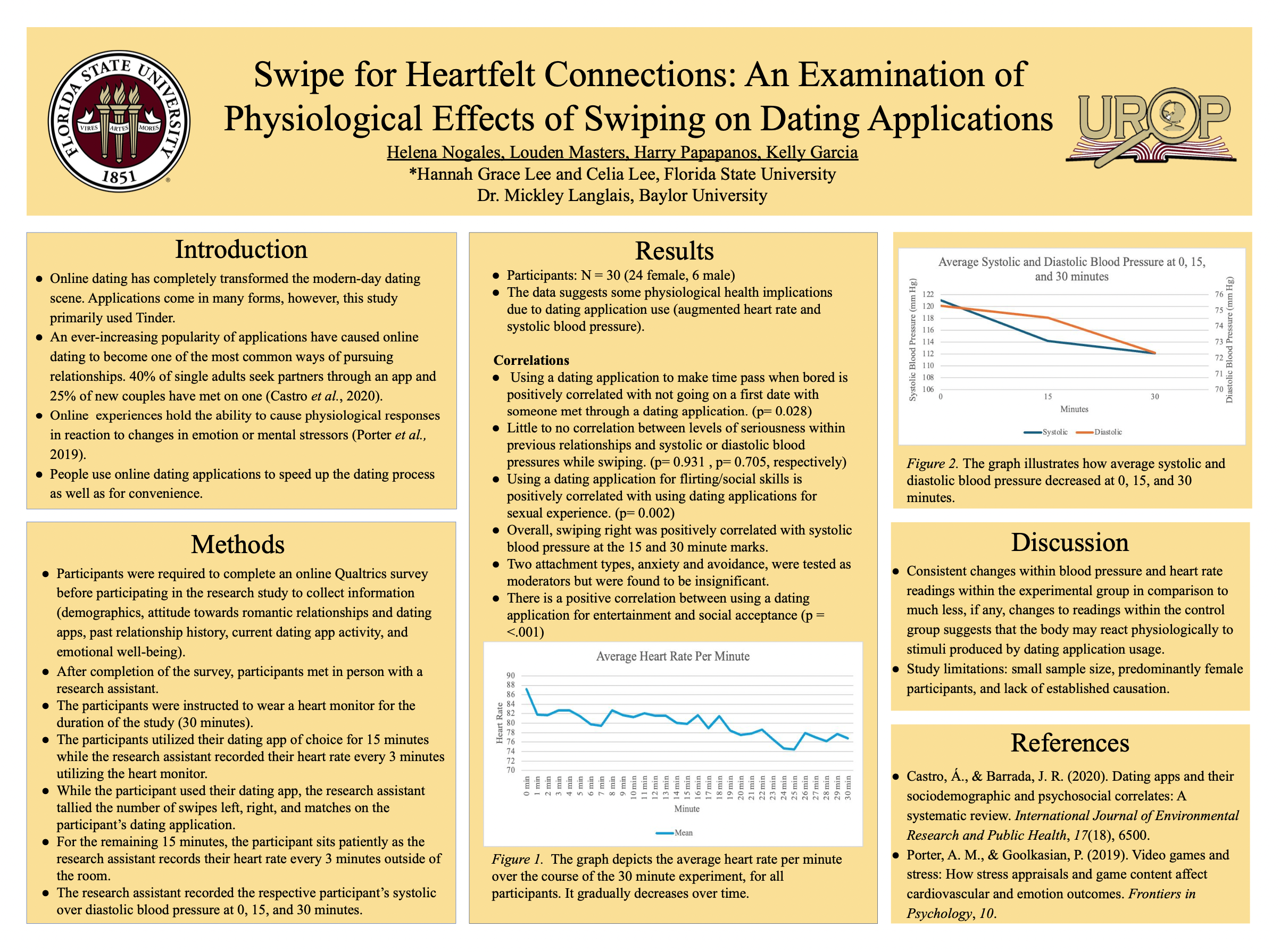Research Symposium
24th annual Undergraduate Research Symposium, April 3, 2024
Helena Nogales Poster Session 2: 10:45 am - 11:45 am/138

BIO
My name is Helena Nogales, and I am a sophomore majoring in Exercise Physiology with a minor in Chemistry on a Pre-Medical track. I am originally from San Juan, Puerto Rico but I currently live in Pensacola, Florida. Aside from UROP, I have been involved with Alpha Delta Pi, American Medical Student Association, Tallahassee Memorial Healthcare Volunteering, and Dance Marathon throughout my two years at FSU. After completing my undergraduate studies, I plan on going to medical school.
Swipe for Heartfelt Connections: An Examination of Physiological Effects of Swiping on Dating Applications
Authors: Helena Nogales, Hannah Grace LeeStudent Major: Exercise Physiology
Mentor: Hannah Grace Lee
Mentor's Department: Neuroscience Mentor's College: College of Arts and Sciences Co-Presenters: Louden Masters, Harry Papapanos, Kelly Garcia
Abstract
As humans, we are driven by a need to connect with others (Maslow, 1943). With the rise of communication technology since the late 20th century, it is easy to connect with people. Technology has rapidly become a main way of forming romantic relationships due to its ability to connect people at any time and place. The growing integration of technology in communication is also evidenced by the regular use of mobile dating applications (MDAs) among adults. While studies have shown why people use online dating applications, few have examined the physiological effects of using a dating application. According to the National Institute of Health (NIH, 2021), increased heart rate and blood pressure can hinder health. Therefore, the goal of this study is to understand how online dating may contribute to changes in physiological health. Data was collected from undergraduate students who were single and had a dating application (N = 30). Participants came to a lab, put on a heart monitor, and their blood pressure was measured. Next participants used a dating application for 15 minutes and then stopped, at which point their blood pressure was measured. Participants blood pressure was also measured at 30 minutes. Heart rate was measured continually throughout the 30-minute experiment. Correlation and regression analyses revealed that swiping right was positively associated with systolic blood pressure at 15 and 30 minutes. Attachment anxiety and avoidance were tested as moderators but were insignificant. Results show that using dating applications has some minor implications for physiological health.
Keywords: Relationships, Health Implications, Blood Pressure, Heart Rate


